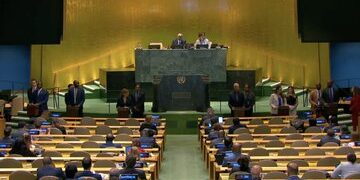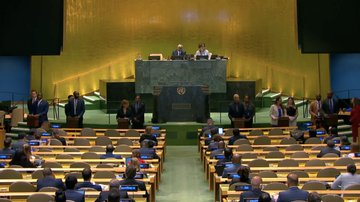New York — In a powerful affirmation of Africa’s growing influence on the world stage, the Democratic Republic of the Congo (DRC) and Liberia were elected Tuesday as non-permanent members of the United Nations Security Council (UNSC), the body responsible for maintaining international peace and security.
The two African countries will serve two-year terms from January 2026 to December 2027, alongside Bahrain, Colombia, and Latvia, who were also elected. Their successful bids come at a time when Africa continues to assert its role in shaping global responses to conflict, peacebuilding, and security challenges.
Africa’s Rotating Seats: Continuity and Strategic Engagement
The election, conducted by secret ballot in the UN General Assembly, saw 188 member states participate. The DRC received 183 votes, while Liberia garnered 181, both surpassing the required two-thirds majority and signalling broad international support for their roles on the Council.
The DRC and Liberia will replace Algeria and Sierra Leone, the outgoing African representatives whose terms conclude at the end of 2025. Somalia, elected last year, will continue serving until the end of 2026, maintaining Africa’s presence and continuity on the Council.
Their inclusion ensures that African perspectives remain central to UNSC deliberations, particularly in light of ongoing and emerging crises across the continent, such as instability in the Sahel, conflicts in Sudan and the Horn of Africa, and peacekeeping transitions in the Democratic Republic of the Congo and Central African Republic.
Africa’s Broader Peace and Security Agenda
With the African Union (AU) increasingly active in conflict prevention and mediation, African representation on the Security Council is crucial to promoting African-led solutions to African problems.
The DRC and Liberia, both post-conflict nations with experience in peacekeeping, reconciliation, and institutional rebuilding, are expected to champion issues such as: strengthening peacekeeping effectiveness, promoting transitional justice and post-conflict reconstruction, advocating for equitable international partnerships in counter-terrorism, and addressing the root causes of conflict, including climate shocks and youth unemployment.
This is DRC’s third term and Liberia’s second on the Security Council. Their return to the global body reflects renewed international confidence in their ability to contribute constructively to global peace and diplomacy.
Other elected members include: Bahrain (186 votes), representing the Asia-Pacific Group; Colombia (180 votes), representing Latin America and the Caribbean; and Latvia (178 votes), representing Eastern Europe—marking its first-ever term on the Council.
These new members will join current non-permanent members Denmark, Greece, Pakistan, Panama, and Somalia, who are serving through 2026.
The Security Council comprises 15 members—five permanent (China, France, Russia, the UK, and the US) with veto power, and ten non-permanent members elected for staggered two-year terms to ensure geographic balance and fresh perspectives in Council deliberations.
Africa’s Ongoing Push for Reform
Despite occupying three rotating seats, African nations have long pushed for permanent representation on the Security Council, citing the continent’s growing geopolitical importance and the fact that most Council discussions involve African issues. The latest elections provide an opportunity for the DRC and Liberia to elevate Africa’s call for inclusive and equitable global governance, particularly through the African Union’s Common African Position on UNSC reform.
As their terms begin in January 2026, the DRC and Liberia carry not only their national flags but also the aspirations of a continent striving for peace, justice, and a stronger voice in international decision-making.









